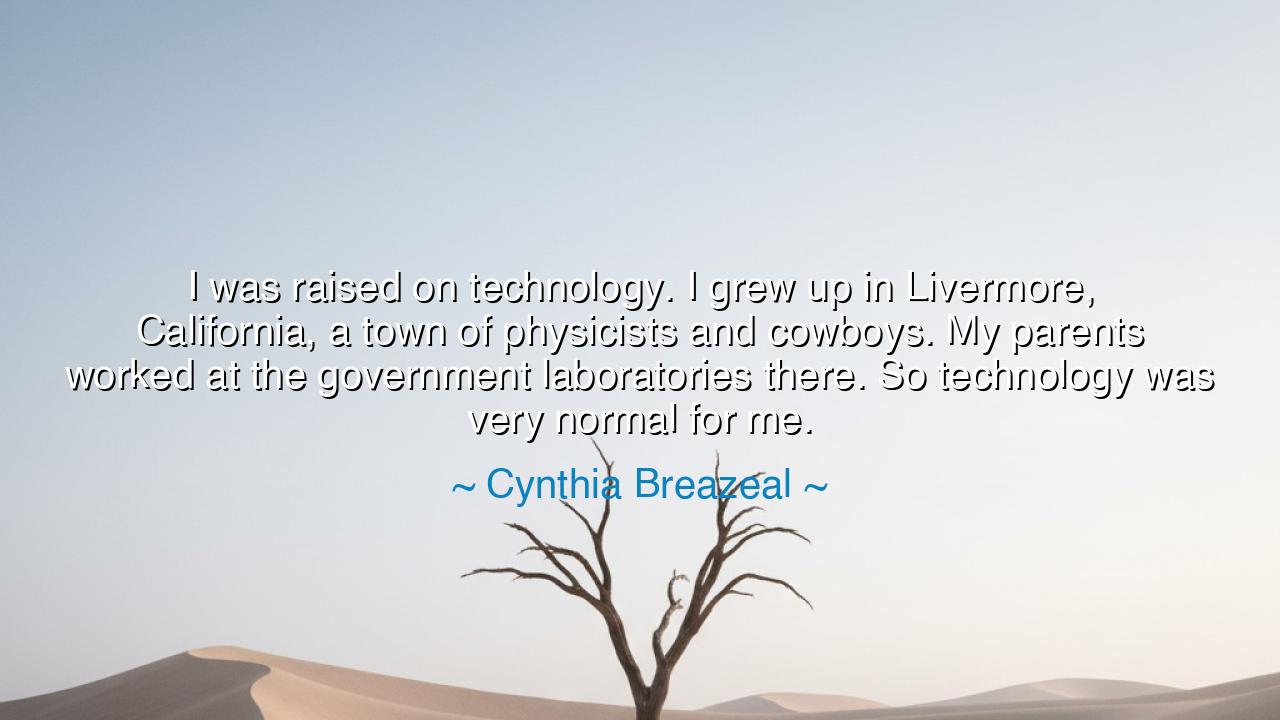
I was raised on technology. I grew up in Livermore, California
I was raised on technology. I grew up in Livermore, California, a town of physicists and cowboys. My parents worked at the government laboratories there. So technology was very normal for me.






In the words of Cynthia Breazeal, pioneer of social robotics and visionary of human–machine interaction, there flows a remembrance both humble and profound: “I was raised on technology. I grew up in Livermore, California, a town of physicists and cowboys. My parents worked at the government laboratories there. So technology was very normal for me.” Though she speaks of her childhood, her words reveal the seeds of destiny, for from the soil of her upbringing sprouted a mind that would one day give birth to robots that smile, listen, and teach.
Her story begins in a place of contrasts—Livermore, where cowboys roamed with the spirit of the frontier, and physicists bent their minds toward the unseen forces of the universe. In this meeting of rugged tradition and scientific exploration, Breazeal was formed. She drank from two wells: the courage of pioneers who tamed wild land, and the brilliance of scientists who tamed the atom. Thus, technology was not strange or foreign to her, but as natural as the air, as common as the soil beneath her feet.
In her reflection lies a greater truth: that what is made ordinary in childhood becomes the foundation for greatness in adulthood. For those raised among musicians, music is natural; for those raised among merchants, trade is instinctive. Breazeal was raised among laboratories and experiments, so her vision of technology was never burdened with fear—it was filled with possibility. What others saw as strange, she saw as familiar. What others treated with suspicion, she embraced with curiosity.
History offers us many mirrors of this pattern. Consider Leonardo da Vinci, raised in the workshops of Florence, where brushes, chisels, and notebooks surrounded him from youth. To him, art and invention were not mysteries but daily bread, and from this upbringing he grew into one of history’s most boundless minds. So too with Breazeal: from her childhood among physicists and cowboys, she inherited the instinct both to invent and to pioneer, to bring forth new worlds by uniting imagination with machinery.
The meaning of her words also speaks to the nature of normality. That which is seen as “normal” shapes the boundaries of what we believe possible. Breazeal reminds us that technology, to her, was not a distant tool but an environment, a language she learned as naturally as speech. It was this familiarity that allowed her, later in life, to ask not “can robots exist?” but “how can robots live with us, teach us, and love us?” Such questions are born only in those who have long seen technology not as alien, but as kin.
Yet there is also beauty in the contrast she describes—physicists and cowboys. For in this meeting of science and spirit lies the secret of innovation. The cowboy dares, the physicist calculates; one carries courage, the other wisdom. Breazeal was heir to both traditions, and so her vision of robotics was not cold or mechanical, but warm, daring, and deeply human. She saw not only what machines could do, but what they could mean to people.
The lesson for us is clear: what we surround ourselves with shapes who we become. If we wish our children to see technology not with fear but with hope, we must make it normal, familiar, and creative in their daily lives. And if we, as adults, wish to grow, we must also surround ourselves with the tools, mentors, and environments that expand our vision. For what is “normal” to us today will become the foundation of our tomorrow.
So let the words of Cynthia Breazeal be remembered: that the soil of one’s youth matters, and that familiarity with technology can plant the seeds for future breakthroughs. Take her story as both inspiration and guidance: cultivate an environment of curiosity, embrace both tradition and innovation, and make the extraordinary normal. For from such beginnings are born the dreamers who transform the world.






AAdministratorAdministrator
Welcome, honored guests. Please leave a comment, we will respond soon